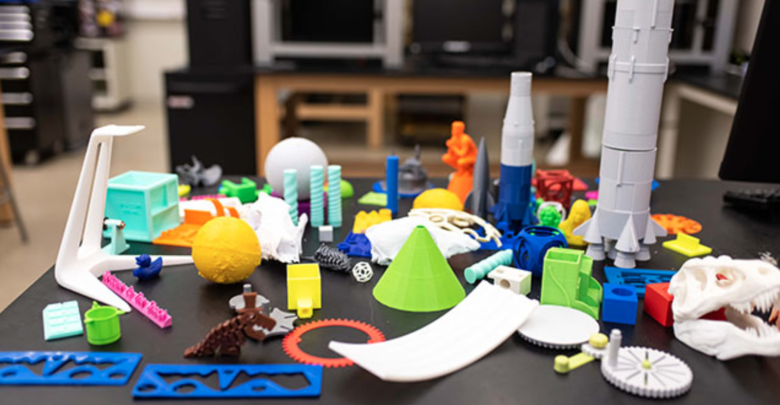U of A lecture series aims to give visibility to LGBTQ2S+ people in STEM
The lecture series brings in LGBTQ2S+ professionals who have found success in the fields of science, technology, engineering, and mathematics (STEM). The series began in Fall 2020 and will continue throughout Winter 2021.
 Rachel Narvey
Rachel NarveyA new lecture series organized by two University of Alberta graduate students is aiming to bring visibility to queer researchers in the fields of science, technology, engineering, and mathematics (STEM).
The lecture series, called Scientific QUEERies, brings in LGBTQ2S+ professionals who have found successful careers within the scientific community. Each talk takes place bi-weekly, on Tuesdays or Thursdays at 1 p.m.
Their last talk of 2020 took place December 15, and featured Tyler Marghetis, an assistant professor in Cognitive Science from the University of California. The series will resume in the new year, with 10 talks scheduled to take place from January through May.
Kyle Shanebeck, a biology PhD candidate and co-organizer of the lecture series, said the series initially stemmed from a desire for more visibility within the science community.
“I don’t even know if there’s any LGBTQ2S+ people in the department of biology who are professors,” he said. “I’m sure there are, statistically speaking, but it’s not something I can find out.”
Scott Cocker, a PhD student in the department of earth and atmospheric sciences and co-organizer of the series, highlighted how in addition to a lack of visibility for LGBTQ2S+ people within STEM, queer identities are still stigmatized within the community.
“It’s something to consider,” he said. “If I do come out, will that affect my work and my collaboration with people? … It affects people’s ability to be themselves in their own lab environment, which to me is really sad.”
Lack of safety a reality for LGBTQ2s+ students, says Shanebeck
Shanebeck highlighted how, for graduate students in particular, the power dynamics of student- professor relationships are already fraught, without the added worry of navigating prejudice.
“The power dynamic is still very strongly in the supervisor’s field, and can be difficult to navigate for so many reasons,” he said. “It becomes even more difficult if you consider biases about sexuality and gender. There’s not a lot of options for graduate students to get out of that if they need, other than just stopping their project.”
While Shanebeck has had a positive experience with both of his supervisors, he shared that getting to a point where he was able to open up about his sexuality was a long and slow process.
“When I first came [to the U of A], I didn’t know what one of my supervisors would think,” he said. “It took me like a year to finally start bringing it up in casual ways to make sure that [one supervisor] would be okay with it.”
Shanebeck, who is originally from California, shared that he had been fired before for his sexuality, a decision that is sanctioned under at-will employment labour laws. On the flip side, he has also experienced situations where he was tokenized for his sexuality.
“It was pretty clear she was hiring me because of some ideas she had about a gay best friend stereotype,” he said. “Those things are realities. It’s not like people want to find a supervisor that’s like them just because they can only have a supervisor who is their gender, or sexuality, or race, that’s not the deal.
“It’s just the reality of the unsafety around us. You’re more likely to have a safe successful experience if someone is like you, and that’s just an unfortunate fact.”
Lecture series invites speakers to share their interests in addition to their identity
Shanebeck and Cocker leave each seminar open to the presenter to decide how they use the time.
“We’ve had quite a few academics describe their journey [as a queer person within academia], which has been great,” Cocker said. “We approach our presenters by telling them we’re happy for them to delve into their journey, or to focus solely on their research and just present as ‘I’m a queer scientist and this is what I do.’”
Shanebeck added that both directions have been fruitful and interesting for attendees.
“That’s why we chose to have it in the format it is because sometimes it’s just science,” he said. “We are people who do science and [discrimination] is an aspect we need to be aware of because it makes our lives more difficult in a lot of ways, but sometimes we want speakers who talk about what they do and that’s just cool!”
The series has brought in professors from the University of British Columbia, the University of Toronto, and the University of Massachusetts. The upcoming semester will also feature speakers from outside the field of academia, with three museum curators, including Jessica Ware, an entomologist from the museum of natural history.
Both Cocker and Shanebeck emphasized that the talks are open to anyone who is interested.
“You don’t have to be LGTBQ2Ss+ to attend,” Shanebeck said. “It’s inspiring to everyone. Even if you’re a cis-gendered heterosexual person, you can be inspired by these stories, and that’s a really important part of any kind of reach out initiative — to make our community visible and human to others.”
Because the talks are attended consistently by graduate students, Shanebeck and Cocker noted how they are hopeful LGBTQ2S+ undergraduate students in particular will begin to attend in increasing numbers.
“An undergrad might come to our talks and see a professor speak and take away the understanding that they’re a part of the community and that this might be someone they could talk to about grad school,” Shanebeck said.
“We want to inspire young or early career queer people to see that they belong in science, because we do belong, we’re already here.”




